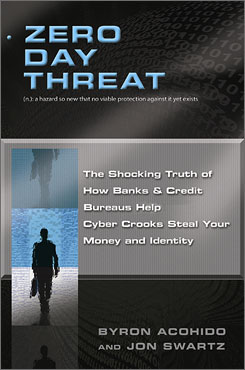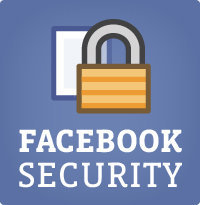How well are you protecting your family computer – and your family – from online scams and cyber crime? Scams these days come in all shapes and sizes. An understanding of how these scams work helps individuals to protect their own personal information. In one recent article the top five scams were listed as:
– online dating scams — fake or “rogue” anti-virus software — Facebook impersonation — becoming a bot — fake websites
The Times Online lists the following top ten scams:
– social networking scams — prediction scams — economy-related scams — “It’s me” scam — the “offer you can’t refuse” — unauthorized billing group — “Man-in-the-phone” scams — E-mails containing Trojans — fake escrow services — phishing scams
You might be savvy about avoiding most of these scams, but it is the simple ones that can trip you up as well. How many people at your office, or amongst your friends, will open that one viral E-mail that makes your IT person pull his or her hair out?
Increasingly scammers are focusing on social networking sites such as Facebook. Since social networking sites are so popular, this is an area where individuals need to be clear in their mind about best practice when protecting personal information. Since youth have a reputation for being more trusting in their relationships, parents need to be vigilant not only about educating their children but also to follow-up and ensure that their advice is being followed. Parents should ensure that they read up on the security advise provided by Facebook to its users. One easy but critical precaution to take is to strip a profile of identifying information such as the names of family members, date of birth, home and work address, visible E-mail, phone number, job title and the names of the universities attended in the Info tab section.
Here are a few other security concerns you may have encountered.
– If you receive a Facebook mail from a friend that looks pre-packaged, sketchy and has no personal touches, chances are it is a scam. Do not click on the link. Click on delete instead.
– If you are sharing links with friends, put enough personal touches in the content so that they know it is legitimate. They will come to expect this standard when receiving links from you.
– If you suspect your non Facebook E-mail address list has been trolled and is sending out spam related to Facebook content, take action and investigate.
– Some Facebook advertisements lead to shifty web pages that can have viruses. Unless you have a rock solid anti virus security system on your system, avoid clicking on Facebook ads. (AVG 9.0 is a popular anti virus system right now.)
– Do not accept friend requests from people you do not know unless there is a logical reason to do so. Consider giving that person a limited view of your profile if you do not know them well.
– Avoid providing Facebook with your actual birth date, primary Email address, phone numbers, place of residence and work details.
– Read through every option under Facebook settings. Make sure you understand what each option means.
– To prevent your image from being used in Facebook advertisements, click on Settings -> Privacy -> News Feed and Wall -> Facebook Ads -> Appearance in Facebook Ads. Select No One.
– Whenever you save something on Facebook – a Note for example- look for the click down option to choose who can see it. For example, do you want your posting to be seen by “friends only” or “friends of friends”. If you are not fond of your ex husband and he is a friend of a friend, you will want to select “Only Friends”. That way if your friend comments on your note, it will not be referenced on your ex’s home page.
– Consider using the customize option more often. You may only want a handful of friends to see a photo album or wall posting, for example.
– Learn how to customize who sees what content on your wall. Do you want everyone on your list to see your bridal shower photos? Do you want everyone on Facebook to see your friend list when they search out your name? Do you want your profile appearing on a Google search? Do you want all your friends to see your status updates?
Related:
For more information about cyber crime watch the CBC documentary about cyber hackers and internet sleuths. If you live outside of Canada you can watch the documentary after installing Hotspot Shield. You just might stay awake all night worrying, after watching this type of news show.
Ten Privacy Settings Every Facebook User Should Know
Link to Facebook’s security page
Fake LinkedIn requests lead to malware. (Always open requests from inside your LinkedIn account.)


